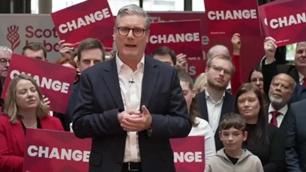A few days ago, ‘Keith’ Starmer declared that he is, despite all the empirical evidence to the contrary, a socialist. The problem with the s-word is that it means different things to different people, so he helpfully attempted to give us a taste of his own definition, which is something to do with putting the interests of the country ahead of those of the party. At first sight, it’s a pretty silly thing to say. It doesn’t look a lot better at second or third sight either. On reflection, I suppose it merely shifts the definition issue off one word and on to another – what does ‘the country’ mean in this context. If ‘the interests of the country’ is shorthand for a belief that the duty of any government is to ensure the welfare and wellbeing of all its citizens on an equal basis, then perhaps the statement is not quite as silly as it looks. Although quite how that might force him to disregard the views of his party is less than clear.
There are not,
however, many signs that this is what he believes at all. Labour have, after
all, made it very clear
that many thousands of people will be expected to continue to live in poverty
under a Labour government, at least until something
magical happens. Even if there are at least partial
solutions available. Most of the time, Starmer seems to be much closer to
the Tory vision of society, in which each individual’s value is related
directly to their financial worth. Turning to the real thing, Hunt was at it a
few days ago, when he claimed
that the Tories are the party of hard work. For other people, of course: because
one thing we know is that for the lowest paid in manual work, ‘working harder’
benefits only their employers. Which is probably what Hunt had in mind, even if
he didn’t say it directly. Meanwhile, those who choose their parents with more
care can go through life carefree without ever discovering what ‘work’ is, let
alone the ‘hard’ version of it.
Of course, it isn’t
just in the field of manual work where rewards aren’t always as proportional to
effort as Tory and Labour alike would have us believe. Whilst there are a very
small number of wealthy artists, musicians, writers and performers, most people
in those fields barely scrape a living together. On the basis of yesterday’s policy pledge from
Sunak, any university courses pursued in such subjects are a rip-off since they
don’t improve students’ later earnings, and should therefore be scrapped. It’s
not just philistinism (which is not the same thing as saying that philistinism
isn’t one of the drivers), it’s another expression of the way in which they see
everything in financial terms, as just another transaction. The idea that
education and learning – let alone the transferable skills such as
carrying out research and then organising and expressing thoughts, all of which
can result from structured study regardless of the subject matter – have any
value in themselves is one that they find strange. But then a well-educated
populace is not likely to turn into an electorate which can be manipulated on
the basis of prejudice, bias and hatred.
Defining ‘socialism’
in a few words isn’t an easy task. Ensuring the welfare and wellbeing of all
citizens on an equal basis might be a reasonable first stab, even if it leaves
unstated the implicit but necessary enabler, which is that the economy should
be run for the collective benefit rather than the benefit of a few. It’s not
what Starmer is offering, though – indeed, he currently seems more concerned
with eliminating from Labour’s ranks any who believe anything remotely similar
to that. It might be reasonable to argue that 45 years of Thatcher and her
successors have left an electorate unready to hear, let alone vote for, a more
collectivist approach, but failing to present one merely reinforces the status
quo rather than challenging it. The problem with an argument that ‘now is not
the time’ to present an alternative is that there is never likely to be such a
time.




